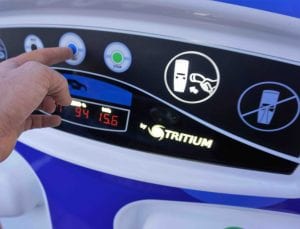Electric vehicles will be vital to decarbonising Great Britain and will play a critical role in providing greater flexibility for the grid and supporting increased production from renewable energy sources, according to a new report from National Grid.
The analysis predicts there will be up to 36 million electric vehicles on the road by 2050 – virtually every vehicle will be electric – and National Grid sees the potential to use EVs to store roughly one fifth of GB’s solar generation for when this energy is needed.
“Electric vehicles can help decarbonise both transport and electricity supply for Great Britain,” it says in its Future Energy Scenarios report released late last week.“The market needs to align vehicle charging behaviour to complement renewable generation and meet system needs.”
 Fortunately, National Grid says that its new studies shows that the timing, location, and frequency of EV charging varies more than previously thought. “This variability has positive implications for the operation of the electricity system,” it says.
Fortunately, National Grid says that its new studies shows that the timing, location, and frequency of EV charging varies more than previously thought. “This variability has positive implications for the operation of the electricity system,” it says.
It suggests that 75 per cent of EVs could be using “smart charging” by 2050.
This will result in a “smart flexible system” – with some 2.8 trillion accumulated data points – that will need new business models and services to match system needs with vehicle charging requirements and consumer preferences.
“The investment in infrastructure to support increasing numbers of EVs indirectly benefits all energy consumers through lower prices and lower carbon generation intensity.”
While studies in Australia have fretted about the “charging” of EVs, and ensuring that it doesn’t happen at the same time and overload the grid, few (apart from Bloomberg NEF) have looked at the potential of using EVs as a storage and flexibility solution.
To read more on this story, please go to our EV-focused website The Driven and click here.









